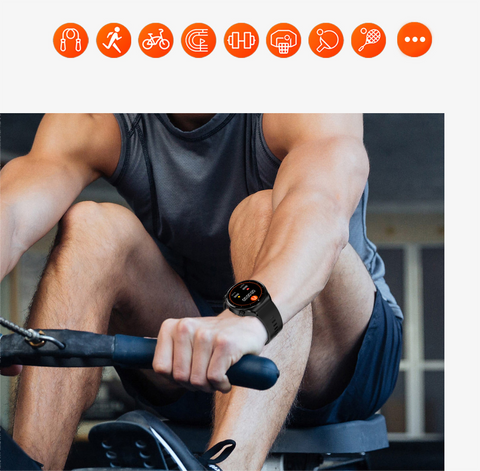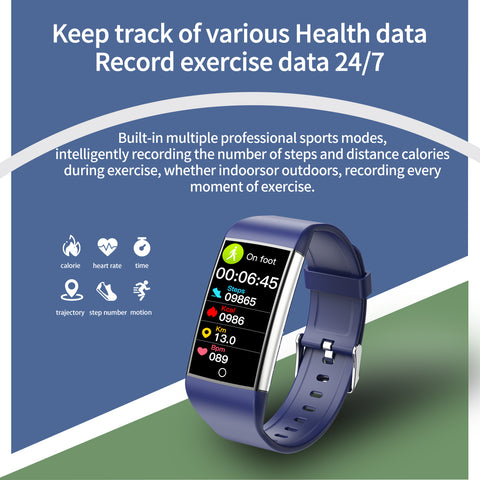Can Brisk Walking Really Make You Younger? Let's Find Out!
Ever wished you could turn back the clock, not just on how you feel, but on how your body actually ages? Well, the secret might be simpler than you think. Forget complicated workout routines or expensive anti-aging treatments—brisk walking could be your ticket to a younger biological age. But how does this work, and can something as easy as walking really make a difference? Let’s dive in.
What Is Biological Age, Anyway?
First things first—what’s the difference between biological age and the age on your driver’s license? Your chronological age is just the number of birthdays you’ve celebrated, but your biological age is a bit more complicated. It’s all about how old your body seems based on factors like cell health, organ function, and even your skin’s elasticity. The good news? You have some control over it, and that’s where brisk walking comes in.

The Walk That Does Wonders: How Brisk Walking Affects Aging
You’ve probably heard that exercise is good for you, but let’s break down exactly how brisk walking can help keep you young.
1. Keeping Your Cells Young and Happy
Your body is made up of trillions of cells, and inside each one, there are these little things called telomeres. Think of them like the plastic tips on shoelaces—they protect your DNA from fraying. The longer your telomeres, the better, but they naturally shorten as you get older. Here’s the kicker: studies show that regular exercise, like brisk walking, can slow down this shortening process. Translation? Your cells stay younger for longer.
2. Boosting Your Heart Health
Your heart is the engine that keeps everything running, and just like a car, it runs better when it’s well-maintained. Brisk walking gets your heart pumping, improves circulation, and lowers your risk of heart disease. This means your heart and blood vessels stay in better shape, which directly contributes to a younger biological age. After all, a healthy heart is a key to feeling and staying youthful.
3. Helping You Manage Your Weight
Let’s be real—carrying extra weight can age you faster. Brisk walking is a great way to burn calories, keep your metabolism humming, and manage your weight. By staying in a healthy weight range, you’re reducing your risk of age-related diseases like diabetes and high blood pressure. Plus, who doesn’t want to feel light on their feet?
4. Keeping Your Mind Sharp
Aging isn’t just about what happens to your body; your mind is part of the equation too. Brisk walking isn’t just good for your heart—it’s great for your brain. It helps reduce stress, improve your mood, and keep your cognitive function sharp. Regular walks can even lower your risk of dementia, making your brain feel as young as your body.
How Much Walking Do You Need?
So, how much brisk walking do you need to start reaping these anti-aging benefits? Experts recommend aiming for at least 150 minutes a week, which breaks down to about 30 minutes a day, five days a week. But don’t worry if you’re short on time—even shorter, regular walks can still make a big difference. The key is to keep moving consistently.

Tips for Getting the Most Out of Your Walk
-
Find Your Rhythm: Brisk walking means moving at a pace where you can talk, but you might be a little out of breath. It’s not a leisurely stroll, but it’s not a sprint either.
-
Mix It Up: Try adding in some intervals—short bursts of faster walking—to kick things up a notch and keep your heart guessing.
-
Make It a Habit: The more you walk, the better. Aim to make brisk walking a regular part of your daily routine.
-
Check Your Form: Walk tall, engage your core, and swing your arms to get the most out of your stride.
-
Stay Hydrated: Don’t forget to drink water before and after your walk to keep your body fueled and functioning.
The Bottom Line
Brisk walking isn’t just a way to stay active—it’s a simple, effective way to reduce your biological age and stay younger, longer. Whether it’s keeping your heart healthy, your mind sharp, or your cells strong, those daily walks can really add years to your life—and life to your years. So, grab your sneakers, head outside, and start walking your way to a younger you. It’s time to take aging in stride!








